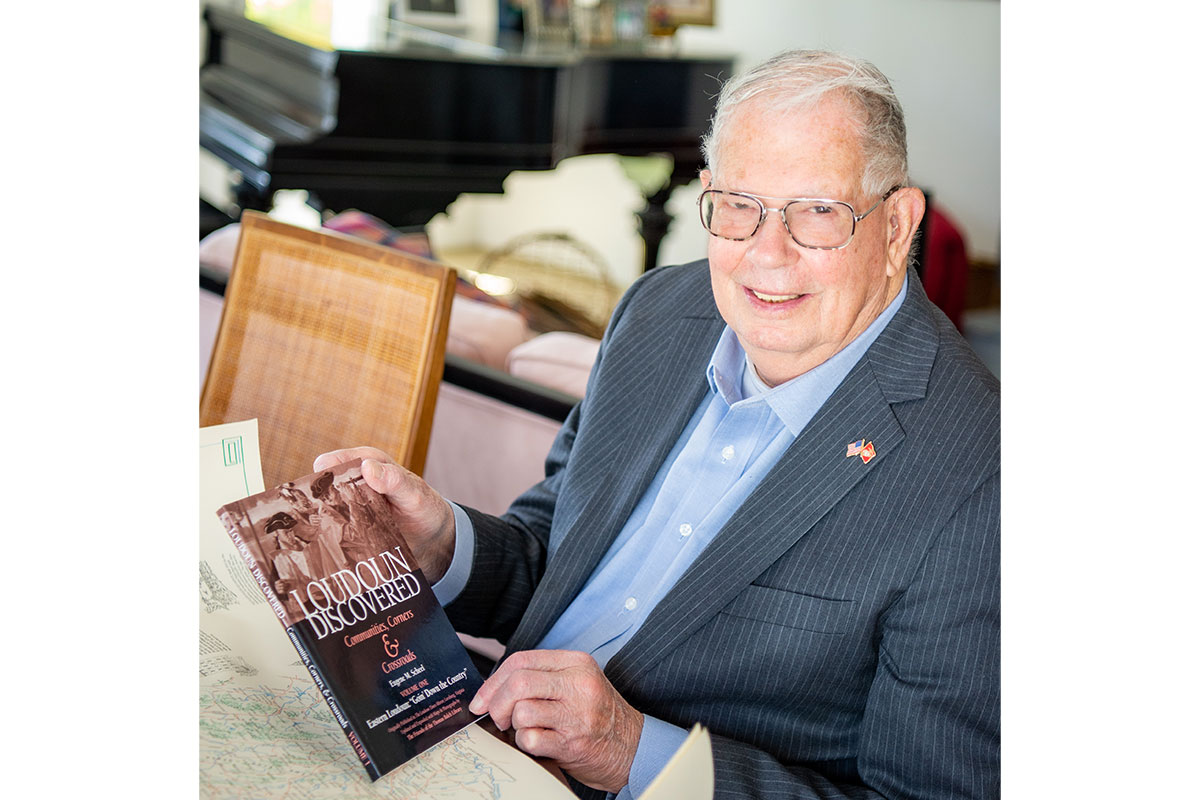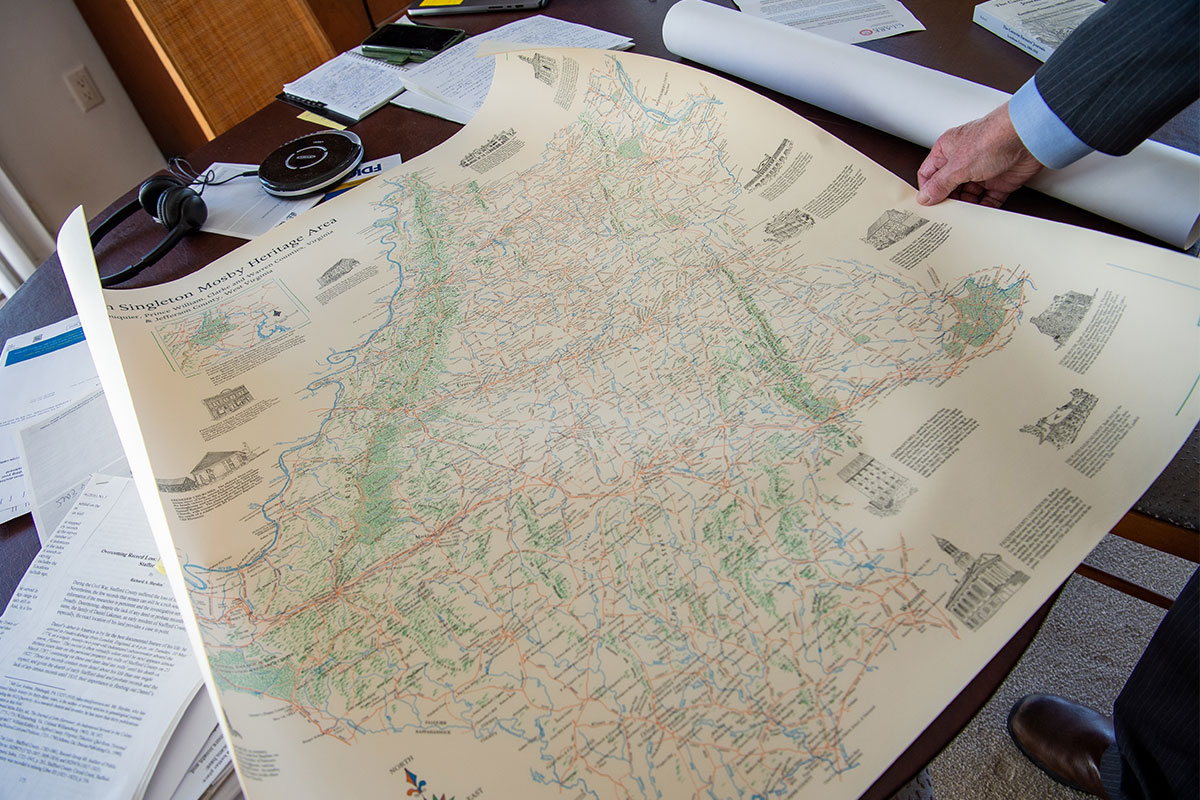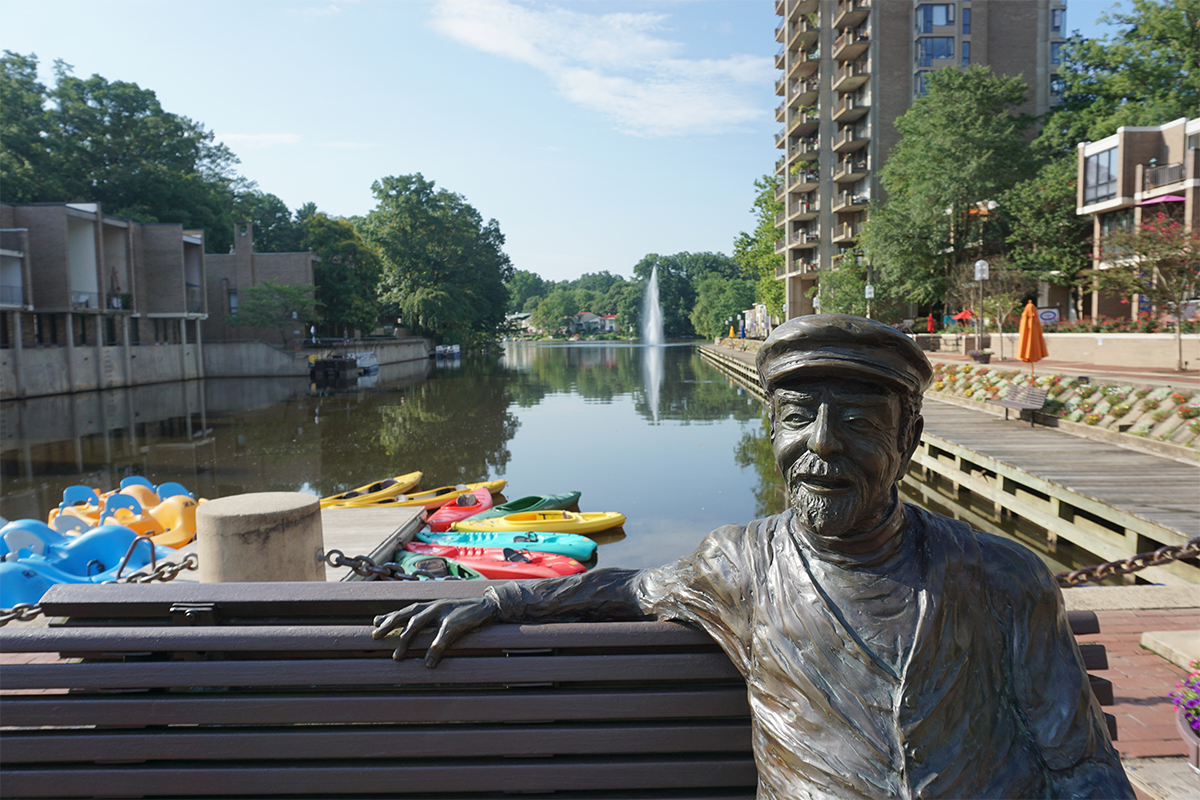For historian Eugene Scheel, there’s more to Loudoun County than vineyards, craft breweries, and horse stables. There’s a legacy of the Underground Railroad, which helped shepherd enslaved Black people to freedom in the 19th century, some crossing the Potomac River and Goose Creek in Loudoun County to continue their journeys north.
Several area sites are on the National Underground Railroad Network to Freedom, a verified network of Underground Railroad connections, including Leesburg’s historic Oatlands plantation and Melrose Farm in Waterford. “The stops were at the outbuildings, the barns, the hay,” says Scheel.

A Waterford resident for nearly 60 years, Scheel has a keen interest in preserving local history, which led him to become a historical mapmaker and an author. Scheel has written 13 books on Virginia history, including a five-volume series called Loudoun Discovered. His most recent book, which was published in April, delves into the history of agriculture in Loudoun County.
For Scheel, historical preservation is a passion. On his hand-drawn maps, he takes care to include sites that are in ruins or have disappeared, like schools, blacksmith shops, and post offices. He pores over old records and government documents. For some history, he just asks around. “I might drive by, see someone sitting on a porch, and stop,” says Scheel. “I just start asking questions.”
Scheel created a historical map of the Underground Railroad, from Orange County northward. Today, it’s on display at the Afro-American Historical Association of Fauquier County, which has a museum on the lower level that explores the history of the county’s Black residents.
He has created maps for Frederick, Culpeper, and Clarke counties, as well as for several banks. His maps are available for sale online at loudounhistory.org.
A 36-inch-by-45-inch Loudoun County historical map costs $60.
Feature image by Amie Otto
This story originally ran in our June issue. For more stories like this, subscribe to Northern Virginia Magazine.





